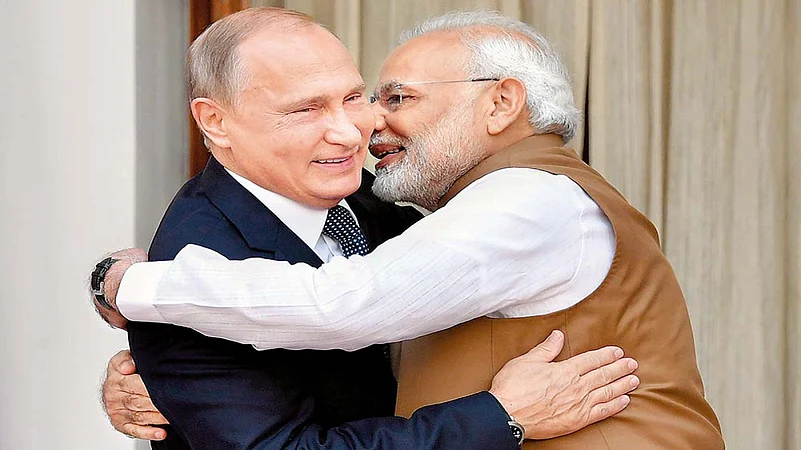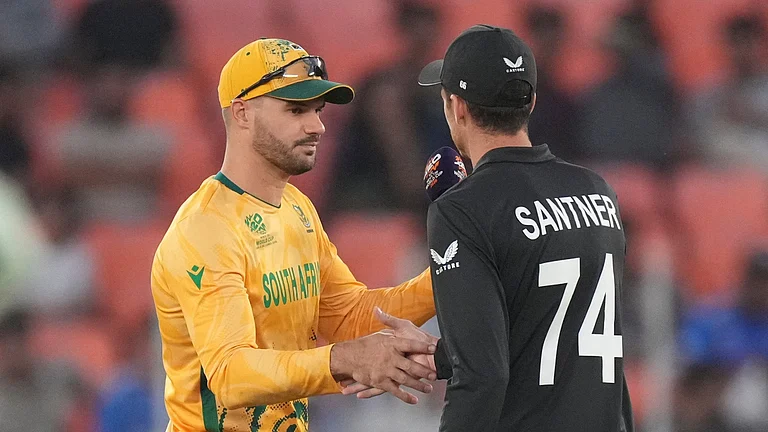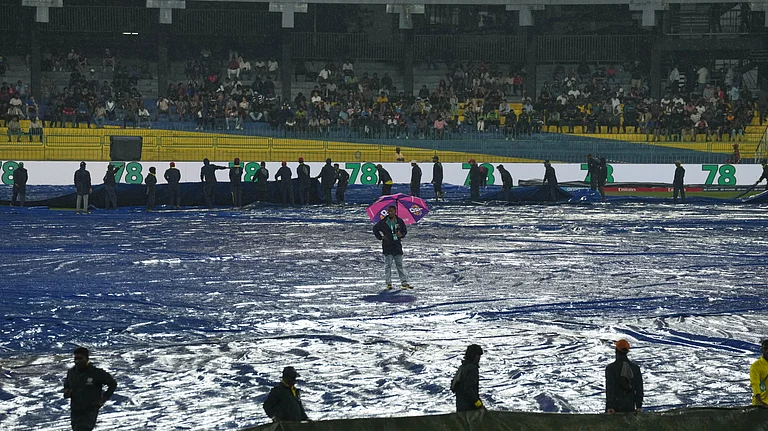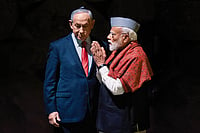Once the staunchest of friends, India and Russia hope to shore up fraying traditional ties at a time of a fluid and changing strategic environment. Whether the two Cold War allies will be able to resist global headwinds pitting them on opposite sides of the international divide is not clear. But neither Russia nor India wants to jeopardise a relationship that had yielded rich dividends in the past.
“India-Russia relations are losing some of its earlier intensity, yet both countries want to make sure that ties do not go into cold freeze or become defunct through inertia, so summit level meetings and talks between senior officials will remain in place,’’ says Nandan Unnikrishnan, a Russia expert at the Observer Research Foundation (ORF).
The equation between the two has, however, changed drastically, with India joining the Quad with the US, Japan and Australia, while Moscow is moving ever closer to India’s arch-rival, China. The fact that US President Joe Biden chose to hold a Quad summit so early in his term, on March 12, signifies that the group will gradually get institutionalised and will form a major pillar of America’s foreign policy. Beijing sees the Quad primarily as an anti-Chinese formation to contain China’s rise in Asia.
Russia has an unequivocal stand on the Quad. Russian foreign minister Sergey Lavrov created a stir in India last year when he said at a think tank that India was being egged on by Western powers to take on an anti-China stand through its participation in the US’s Indo-Pacific strategy. India’s ministry of external affairs had then stated that New Delhi’s foreign policy was independent, based on its national interest and that India stood for a free, open and inclusive Indo-Pacific—in short, the stated goal of the Quad. Even as India and the three Quad nations along with France started a naval exercise in the Bay of Bengal on April 5, Russia stressed on “the rejection of confrontation and bloc-type approaches”.
Despite these irritants, India and Russia have a clear idea of each other’s national interests. Moscow may not be happy with India’s strategic embrace of the US, but knows that behind New Delhi’s stand lies a concern over Chinese muscle-flexing. During last summer’s military confrontation with China in Ladakh, while then US secretary of state Mike Pompeo kept up a barrage of pro-India and anti-China statements, Moscow kept its counsel, but fast-tracked spare parts for military hardware that India desperately needed.
Ever since the annexation of Crimea in 2014 and its role in the continuing civil war in eastern Ukraine, Moscow’s relations with the US and its NATO allies have plummeted. And since the Biden administration took office, relations between Moscow and Washington have deteriorated further, with US intelligence agencies accusing Russia once again of interfering in the US presidential elections. The usually diplomatic Biden took a page from the Trump playbook to call Russian President Vladimir Putin a ‘killer’ in a recent interview.
With China, the US is engaged in a rivalry that the entire world follows with concern. If President Trump led the charge by calling China out on unfair trade practices, suspicious activity over the coronavirus—first detected in Wuhan—as well as its patchy human rights record, Biden has taken those issues up from where his predecessor in the White House left it. This antagonism with the US is driving Moscow and Beijing into each other’s arms. It helps, too, that Russia faces an economic turndown and China is opening its purse strings to Putin.
Despite Moscow’s compulsion to play along, Russia knows better from past experience not to rely on China. Both Communist countries were comrades in the early years, but the binds of ideology were not firm. They fell out bitterly. It was exploited by then US president Richard Nixon and his secretary of state Henry Kissinger to woo China and get even with the former USSR—then a superpower and the main US adversary. Russia, like India, does not want China to flex its muscles in Asia with impunity. New Delhi and Moscow may have differences, but none that cannot be smoothed out, as the relationship so far has been one of mutual trust.
The warming ties between Russia and China had a predictable outcome in South Asia: Moscow’s overtures to Pakistan—the ‘all-weather’ ally of China—mainly to get a toehold in Afghanistan. Now that Russia is a player in Afghanistan, Islamabad and Moscow’s relations have vastly improved. In the light of the recently signed Comprehensive Strategic Partnership between China and Iran, there is talk now of a future China-Russia-Iran-Pakistan axis. But that will happen only if relations between the US and Western allies on one hand and China and Russia on the other reach a breaking point. Most likely, there will be convergence on issues like climate change and differences over South China Sea and Russia’s role in Syria. But on Afghanistan, the US, China and Russia are on the same page.
This week, Lavrov was in New Delhi on a two-day official visit for an in-depth conversation with his Indian counterpart S. Jaishankar. The foreign ministers also laid the groundwork for President Putin’s visit to India later this year. Apart from bilateral ties the focus was on the international and regional scene. Since Lavrov was accompanied by Moscow’s special envoy on Afghanistan, the difficult peace process in Afghanistan, in which Russia is taking a keen interest, was also on the table. Ahead of Lavrov’s visit, the Russian embassy in New Delhi said in a statement: “A special and privileged strategic partnership with India is one of Russia’s foreign policy priorities.” Russia is also pushing for India’s approval of the Sputnik coronavirus vaccine.
A major point of interest for both Russia and India is whether the Modi government will go ahead with the purchase of the S-400 missile defence system. The Trump administration had exerted pressure on India to cancel the deal, as it would attract US sanctions. Analysts would be watching for any sign of weakening from India. At the news conference on April 6, the question of US sanctions on those acquiring the S-400 was asked. Both foreign ministers said it did not come up in their discussions and would be taken up by their respective defence ministers at their meetings later this year.
It is highly unlikely that Prime Minister Narendra Modi, who had personally assured President Putin that India would go ahead with the billion-dollar deal, will change his mind. The Americans are also aware that India cannot be pushed beyond a point. In his opening remarks, Jaishankar said India’s ties with Russia were “time tested” as well as “strong and steady”. It remains to be seen whether they are strong enough to withstand the fast-changing global power dynamic.



























